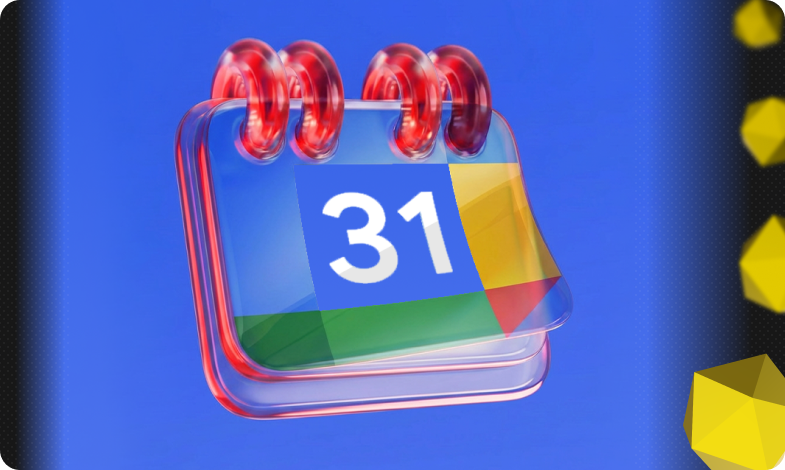Content of the article
- /01 Step 1: Choose a niche and decide what products to sell
- /02 Step 2: Research and analyze your target audience
- /03 Step 3: Finding suppliers
- /04 Step 4: Choosing a name for your online store
- /05 Step 5: Create a website and customize the design
- /06 Step 6: Fill the online store
- /07 Step 7: Customize payment for goods and delivery on the site
- /08 Step 8: Set up advertising to attract customers
- /09 Step 9: Set up site analytics
- /10 To summarize

Nowadays, many people make purchases in the most convenient conditions for themselves – while at home. Thanks to the development of the Internet, entrepreneurs have an exceptional opportunity – to create an online store and engage in the sale of their goods online. Trading in an online store is very similar to offline trading. The only significant difference is the distribution network, the Internet. Here as well there is the purchase of goods, logistics, marketing, personnel management and customer support. In general, all that long and stable operates in the usual offline business. How to open your own online store and get a high income from online sales, we will tell you in this article with a detailed description of all the stages.
Step 1: Choose a niche and decide what products to sell
This is a very responsible step. The success of the entire business depends on what goods will be sold. Here is not without nuances. Stop at the popular direction – the profit will be received, but together with it you will get a lot of competitors who have long been firmly on their feet. Stop at a new and little-known direction – there will be few competitors, but you will have to invest well in advertising and promotion, so that the product has become better known.
Whichever way you choose, there are several options. If you stop at the first direction, choose a narrow topic. For example, not furniture in general, but specifically natural wood. If you prefer the second method, but do not plan to spend a lot of money on advertising, you can use word of mouth, give discounts for good reviews or for the fact that the buyer brought a new client. Let people talk about your product.
When choosing a niche, also take into account the seasonality of the product and whether it is currently in demand.

Step 2: Research and analyze your target audience
It is important to know for whom you are working, otherwise there is a high probability that your business will fail. For example, the adult generation is unlikely to be interested in advanced gadgets, teenagers are useless to sell products for the home, and residents of a large city do not need products for the vegetable garden.
What qualities of the target audience should be taken into account:
- Age
Each generation has certain behaviors and priorities. Older people make a thoughtful choice, do not want to overpay, and do not really trust the Internet in general. The purchase of goods becomes something important, which means that it takes longer and harder to lead such users to purchase. Young people are quite spontaneous and to buy something on the Internet for them is a commonplace and meaningless thing.
- Gender
Purchases are more often made by women. Both offline and online shopping. Men usually order something if they want to give a surprise or gift.
- Financial situation
Not very well-off people choose cheaper goods or look for promotions and discounts. Middle-income users look at the quality and then pay attention to the price. Well, customers with great wealth are often interested in exclusive or unusual goods.
There are other properties that should not be forgotten when studying the target audience: the presence of their own homes, children, geographical location, interests, education, and the benefits of the product.
Step 3: Finding suppliers
The next step is to find suppliers of goods. Finding them is not so difficult, but finding good ones is more difficult. What you need to pay attention to when looking for them:
- Quality of goods. There are suppliers who do not work on their conscience – make purchases of defective goods. The price of such goods is lower, but the impression of customers is worse. For any online store, and especially for a new one, bad reviews will not bring anything good.
- If you are in Uzhgorod, and the supplier – in Kharkov, it is unlikely that you will like to wait long for delivery, it is worth looking for a merchant closer.
- Terms of cooperation. Most suppliers take to work only with bulk quantities, but if you have just opened your online store, you may not be financially able to afford large purchases.
- The price of goods. Do not chase too low prices, there may be a catch. But overpriced – also not the best option, you still need to make a markup to work not for free, but to make a profit.
It is also important to take into account such characteristics as stability of supply, availability of goods and packaging, service and reliability of the supplier.

Step 4: Choosing a name for your online store
On the Internet, users remember a store by its web address (domain). For example, the domain name of our website is www.wedex.com.ua. Your store will have its own unique name. When choosing a domain, consider these recommendations:
- Domain name should be easy to perceive by ear
- The domain should not be long
- Do not apply in the domain complex transliteration
- The domain name should be easy to understand by people who do not know the English language
- Use in the domain words that are close to the direction of your business
Step 5: Create a website and customize the design
Once you have decided on all the previous points, you can start opening an online store. How to create an online store? There are 2 options for this:
- Create on your own, using a website builder (for example, OF.UA, Prom.ua). In this case, you will not need a lot of time and money. One-page site in general can be created in a couple of hours.
- Contact the experts who will develop the site. They will do everything themselves, you will only need to agree on options and lay out a decent amount. But at the same time, you will spend a minimum of time.
Regardless of which option you chose, the design can be customized at any time. Standard template you can change as you like: change the logo, colors, swap menu items and any blocks, you can do anything you want.
Step 6: Fill the online store
Once there is already a basis, you can fill the site with content. Most often placed company logo, menu, product cards, contacts, chat window and reviews.
Logo. It is used so that the customer can easily remember and find your brand among the others. Especially important visual design and logo for those companies that use the name with the indication of the sphere of activity (for example, “Special Clothing”). There are many such companies, so it is difficult to remember the seller, but the logo will help in this.
Site menu. If you have a multi-page site, you definitely need it, so that the user knows where to view the goods, learn about shipping and payment, and can contact you if necessary.
Products. You can place them on one page, if the goods are not a lot. If a sufficient number, it is better – on several pages, breaking the goods into categories, so that customers were more convenient to navigate and choose.
If you make photos of the goods yourself, it is necessary that they were in good quality, so as not to scare away customers. If the goods are not large, you can take pictures on your phone or camera. If it is large or you do not have the necessary equipment – it is better to use the services of specialists.
All data about the product should be specified correctly (characteristics; expiration date, if any; price; rules of use).
Contacts. Be sure to indicate how customers can contact you. You can add contact information to the site header so that it is immediately visible.
Chat window. This is convenient because the client does not need to waste time on calls or messengers, he will get all the answers while he determines the choice. Chat gives more chances that the product will be purchased immediately. Only it is better to make a notification on each page of the site that you can write in the chat. And it will be necessary to allocate a separate specialist who will answer all the questions of buyers.
Reviews. If orders on the site have already been, you can ask someone from the customers to leave a review. Comments from real buyers increase trust in the seller.
Step 7: Customize payment for goods and delivery on the site
Many customers want to pay for the order upon receipt in cash. But if you have plans to deliver goods by prepayment or facilitate its realization, there is a logic in connecting the acceptance of electronic payments and plastic cards.
As for delivery, it can be organized as courier companies and personal courier service, if you have one. You can organize free delivery for orders from a certain amount. Thus, incentivizing customers to place larger orders so that delivery is free.
Once you have completed all the previous steps, your online store can be considered open. But the road to success does not end there.
Step 8: Set up advertising to attract customers
There are several options for advertising your online store:
- Word of mouth. The easiest way. Ask customers to leave a review or recommendation on forums or social networks in return for a discount.
- Search engine promotion. You can hire specialists who will help you in the Google rankings to take the top position, which means more users will go to your site.
- Contextual advertising. These are advertisements that are displayed on search engines and other websites based on your previous online activities. For example, if you have previously searched for a dress, you will see offers with dresses in such ads.
- Commodity sites. Quite a good option for attracting customers. For example, those products that are placed in Google Shopping are displayed for search queries in Google search. Transitions on them cost less than in contextual advertising.
Step 9: Set up site analytics
With the help of analytics, you can find out where the client came from to your online store, track the level of marketing activities, understand what advertising works and what does not. Special services will help you track the following indicators:
- the most popular sections of the site;
- the number of purchases per day, sales for the month and how many were returned;
- the number of customers who returned to the site and the number of unique visitors.
Now all the stages have been passed, only development is ahead of you. And as soon as your site began to process so many orders to cover all the necessary costs, you can say that your store – a working business.
To summarize
In the article we considered how to open an online store and what stages you need to go through to make it successful. As you can see, for this you do not need to have special technical knowledge, you are required to have good business acumen, a desire to succeed and perform only a few steps.






 07/08/2023
07/08/2023  4026
4026



